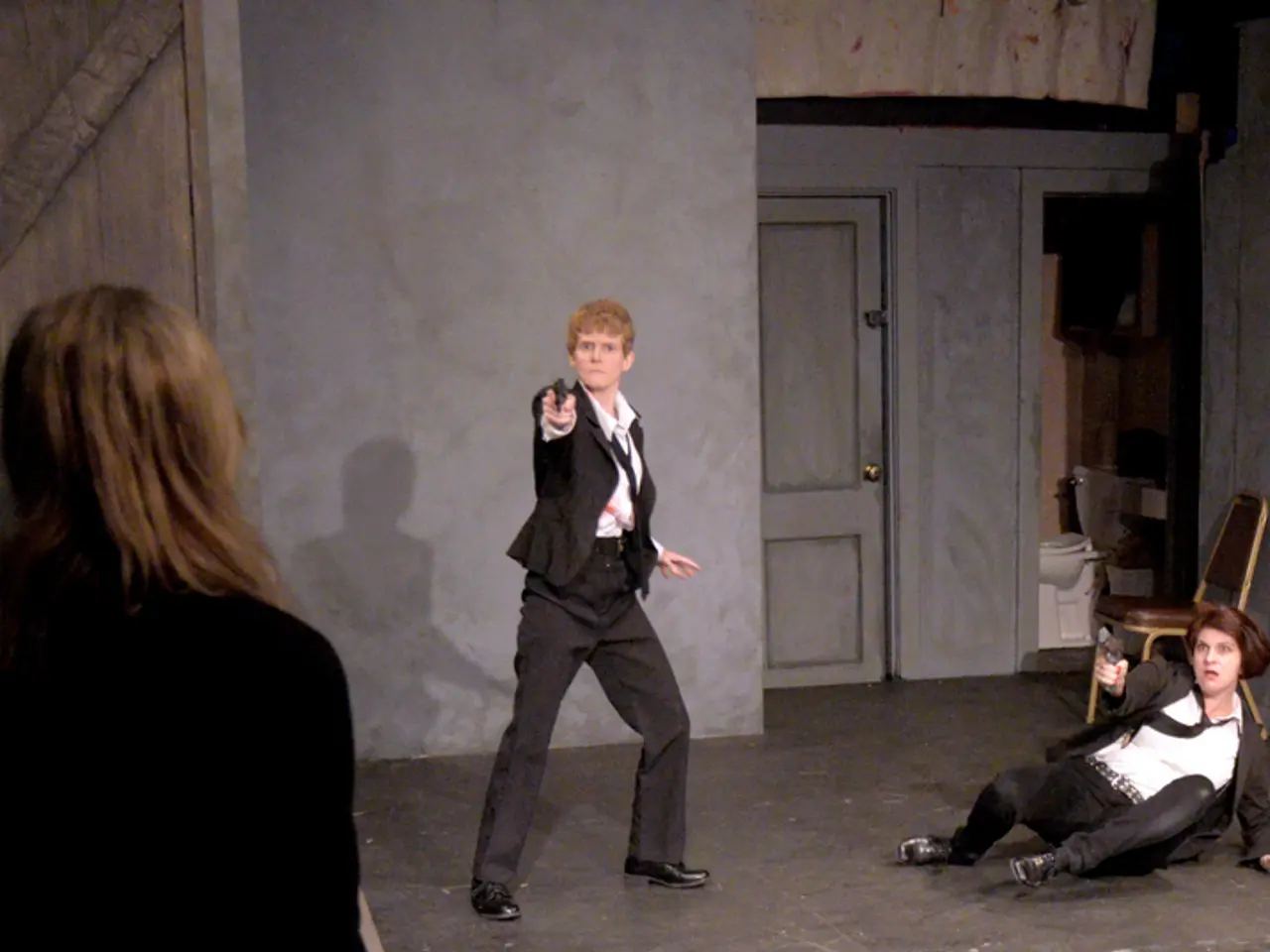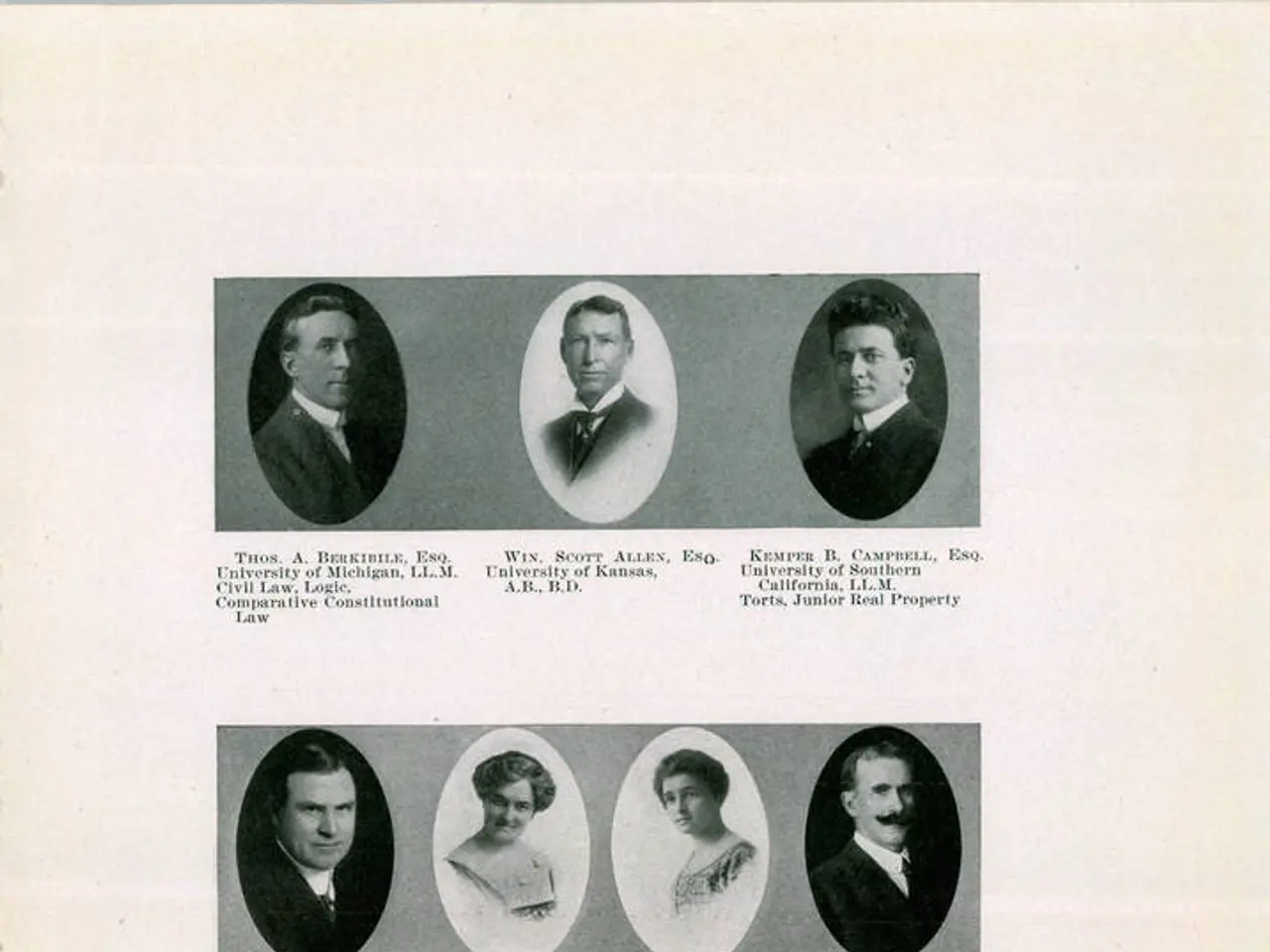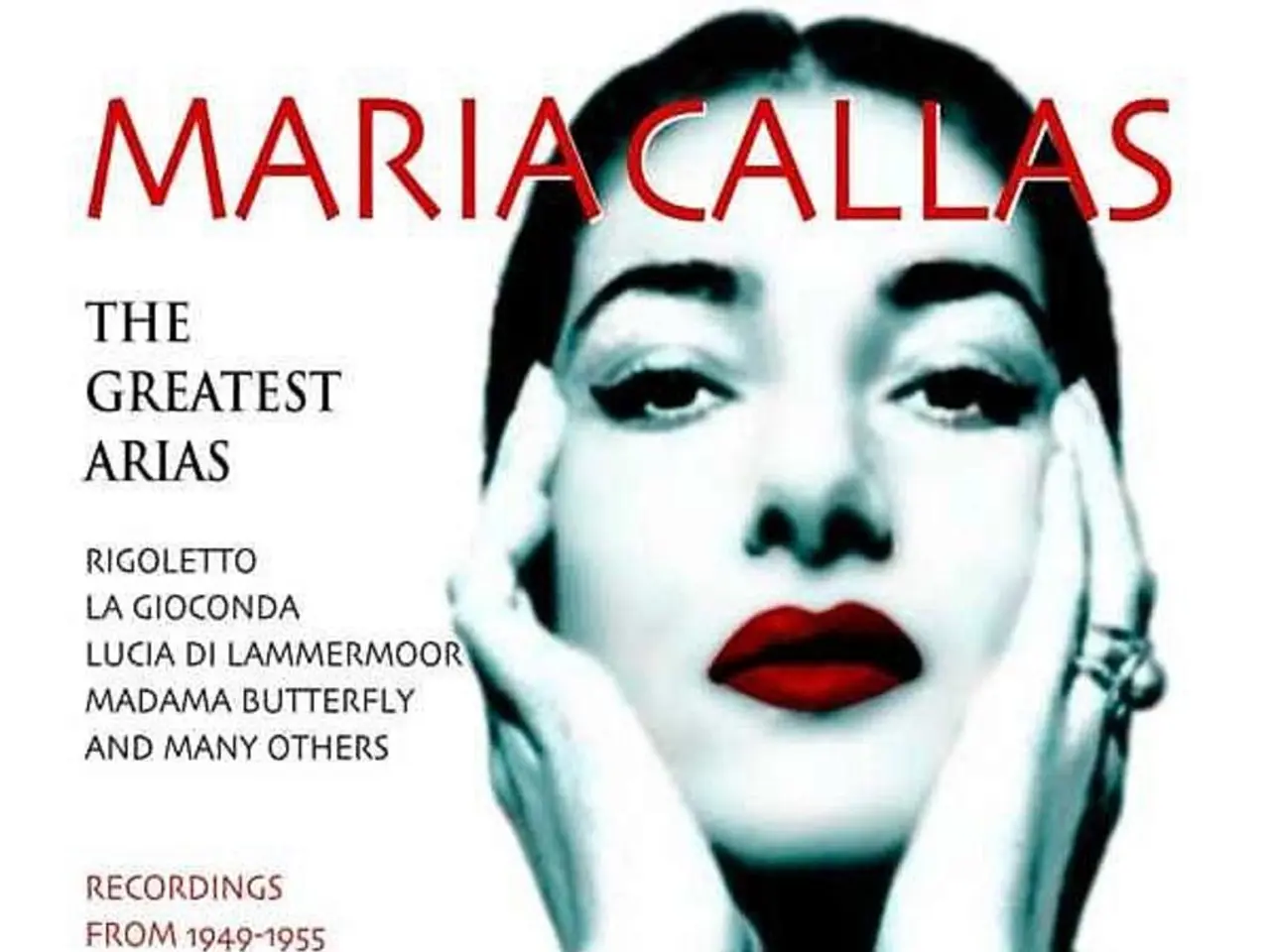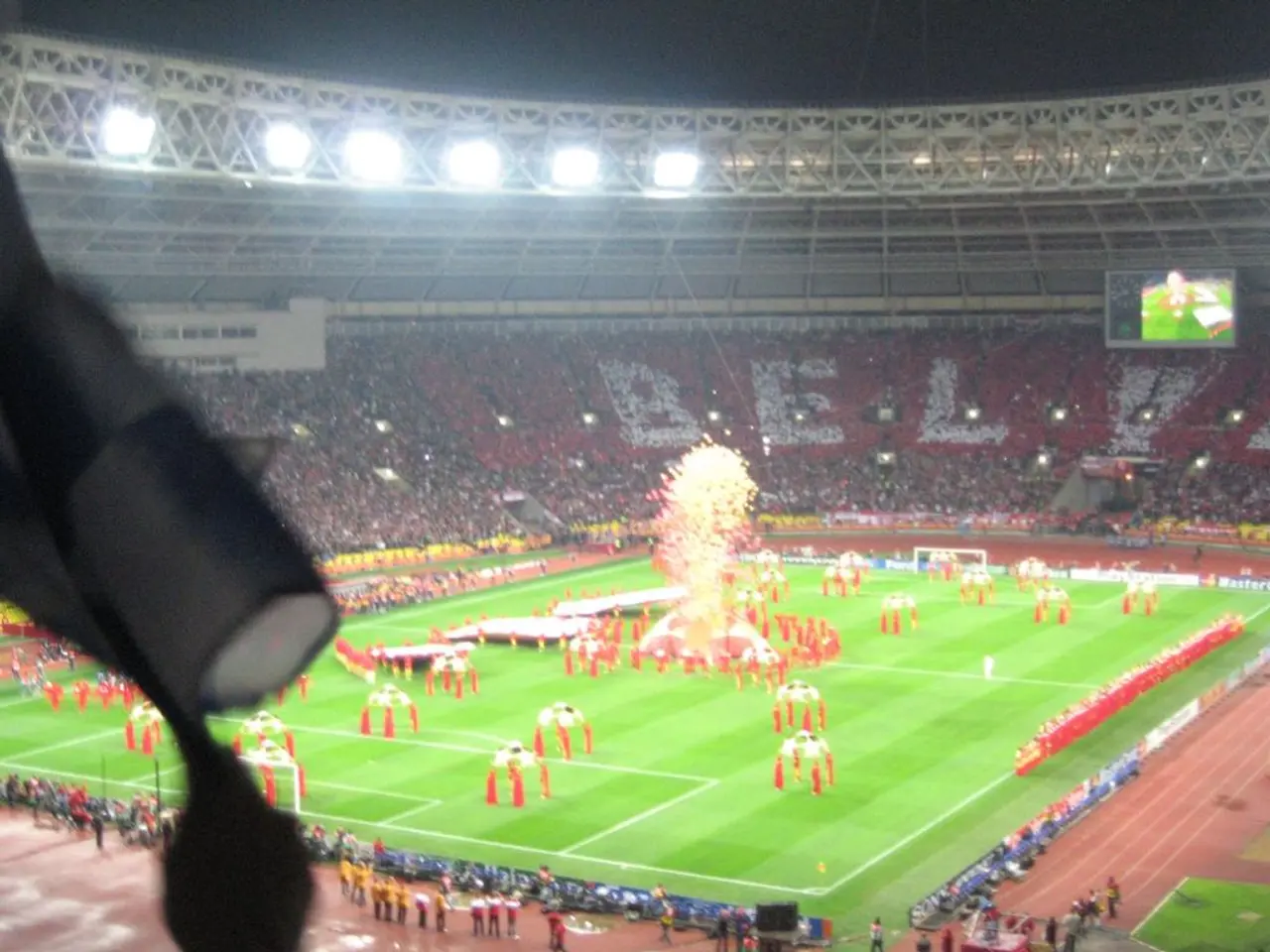"Stay firm, everyone, in this discussion with Natalia Dulina covering the GOPniks of GUBOPIK, Kolesnikova, and matters inside the penal colony."
"Our Niva" Sits Down with Natalia Dulina: A Tale of Arrest, Prison Life, and the Tortured Path Towards Freedom
"Our Niva": Start off by sharing your arrest experience.
Natalia Dulina: My arrest, initially, was quite the talked-about event. But my release, it was the real stunner-with a bag over my head and all...
Typically, I'm a night owl-working late and catching some sleep when responsibilities allow. On that specific day, my ringer went off around eleven, but I left it unanswered. Next, the phone by my bed rang-it was from Oktyabrsky District RUVD, asking if I could swing by for some interview about 2020 events. I jokingly questioned my availability, figuring they'd send someone over to chat.
Unbeknownst to me, I'd been caught off guard. Instead of dashing for cover, I lounged-just kind of laid there. Then, a knock on the door came booming-"Open up!" I stumbled to get dressed, and they kept pounding-"Open up! We'll break down the door." I shouted for a moment to gather myself, then opened the door, greeted by a sea of 'astronauts.' They marched in, single-file, barely grazing the walls. After confirming I was alone, they led me away. GUBOPiK took up residency in my home thereafter-a bit unsettling, considering their less-than-encouraging reputation as intolerable bullies in the realm of enforcement.
"Our Niva": Can you tell us about the treatment you received at the hands of GUBOPiK?
ND: Upon entering my humble abode, complete with unkempt feline inhabitants, GUBOPiK displayed their distinct brand of disrespect. It was like a scene lifted from a bad comedy, though it wasn't consideration dressed as mockery. They didn't exactly vandalize my home, but they didn't shy away from incredibly petty verbal torment. Among their empty threats and derisive comments, I remember the guy with Stalin's portrait hanging over his head-a grisly reminder that certain ideologies refuse to fade away.
When interrogated about symbols, they conducted an unofficial search, only taking pictures of the chaos to exploit. Later, one of the officers posted a picture of my hallway from the outside, capturing the arrest squad's preparation with a sickening glee. This revelation shook my mother, imagining the harrowing experience I must have gone through.
As for my cats, they took the whole endeavor with shock, leery of strangers and loud sounds.
"Our Niva": How did your daily life, and take care of your cats, change during your imprisonment?
ND: Truth be told, I never stopped working while I was incarcerated, even after reaching retiring age. My mother, brimming with tenacity, saw to it that my feline friends were well-cared for during my detention. As a retirement benefit, I didn't have to work, but I could engage in activities on a routine basis. When others were sent off for daily labor, we retired folk followed our own schedule, sipping tea and tip-toeing about the hostel's courtyard. There wasn't much room for individuality in that place, but I still managed to read and stroll around.
"Our Niva": Were the conditions for communication, such as letters, strictly regulated?
ND: So far as official correspondence went, letters from my mother and husband got through without a hitch. However, letters from non-relatives weren't exactly welcomed with open arms-the investigator once hinted as much. That particular loophole posed some problems, as occasional missives didn't always make it past the censors.
Operatives also unpleasantly monitored minor behavior "infractions"-I couldn't even share a candy with a friend without risking punishment. In extreme cases, these minor transgressions could result in SHIZO-a daunting, dreaded sentence that loomed over all political inmates.
"Our Niva": Recall any abusive or demeaning interactions during your time in detention.
ND: The most disconcerting memory I have is from SHIZO, a place where mental and physical abuse were rampant. The conditions were borderline unbearable-cold, insufficient food, and weakening immunity. My eyeglasses, which I needed to function effectively, were taken away, leaving me even more vulnerable during my stay.
One colorful exchange that struck a cord occurred in a disciplinary panel, presided by the colony head. When I refuted the operative's accusations, he remarked, "You know, Dulina, you're swimming towards Zarechye (a colloquial term for a harder, more violent prison)." I retorted, "A live fish always swimming against the current."
The colonies are intended for repeat offenders and those sentenced to longer terms, so my statement was a bold stance against the blatant injustice of the situation. Unsurprisingly, I was given a five-day stint in SHIZO as retaliation for my audacity. After all, I told the truth about my innocence, so why lie?
"Our Niva": What particular events, feelings, or aspects of your imprisonment left lasting, distressing impressions?
ND: On the physical side, SHIZO left me near-crippled, lonely, and shivering with cold. Emotionally, I felt isolated, discouraged, and lost faith in the country's system. So many bad things happened during my time in Okrestina, a notorious detention facility that made my stay even more terrifying.
"Our Niva": Given that you were able to survive and eventually seek solace in teaching Italian to others, were there any positive moments or experiences that brought joy?
ND: Whenever I witnessed another political prisoner released, I felt a burst of hope amidst the gloom. The liberated were greeted with a wave of jubilant cheers, their stories passing from detention unit to unit with infectious excitement. But my optimism was soon squashed by the reality that the gains were merely a smokescreen, as more voices were silenced in their place.
I drew strength from knowing that I stood by my convictions, that I hadn't betrayed myself, or lied to maintain my freedom. The memoir of a small victory, a glimmer of hope, spurred me forward.
"Our Niva": Can you speak about other political prisoners you've encountered during your ordeal? Who stood out as needing release?
ND: I learned of Irina Merchel's seriously deteriorating health-she suffers from a multitude of ailments, including diabetes and chronic pulmonary disease. Lyubov Rezanovich is another infirm political prisoner, her husband a diabetic, both struggling to survive this ordeal. Maria Kolesnikova certainly deserves to be freed, as she remains resilient, sporting a courageous smile and treating everyone with kindness.
"Our Niva": With your fresh perspective on freedom, do you have any thoughts on strategies to free other oppressed political prisoners?
ND: Ideally, a peaceful, diplomatic approach would be required, leveraging the global community to pressure Belarus into making changes. However, much like a radical animal rights activist who breaks into a laboratory, the situation demands drastic measures. Relocating to another country and garnering external support would be the optimal path towards securing political prisoners' release.
As for my personal situation, I lacked the resources to extract myself from Belarus. My home, my mother, my husband, and my cats reside there, making departure difficult. However, my conscience remains clear, as I strive to continue standing for justice and do everything in my power to support my fellow political prisoners.
"Our Niva": Do feelings of hatred or anger towards those who tortured you bubble up within?
ND: Empathy overpowers animosity. I find myself focusing on the victim, feeling their pain as if my own. While I do not condone brutality or betrayal, I cannot harbor anger towards my tormentors. Perhaps it's an age thing, or perhaps it's just experience, but I don't hold a grudge.
"Our Niva": What did you secretly wish for when you first gained your freedom?
ND: Initially, solitude beckoned, a chance to process my newfound freedom and focus on self-care. I dreamt of gearing up for a gym routine or hitting the swimming pool, readjusting my life in a retrained focus.
In reality, I now question whether my entire ordeal was just a waking nightmare. I longed to return to my sentencing terms, to feel a semblance of control and stability. My fears about exchange went unrealized, but being compelled to leave made me feel detached and unsure-like I was stumbling through quicksand, without a solid foundation underneath me.
"Our Niva": Are there remaining plans or unspoken goals that you wish to achieve moving forward?
ND: Plans don't exactly come easy in my current situation. Before my "release," I eagerly anticipated resuming a gym routine, sitting down for a hearty meal, and planning my future. But now, I can't even think about what's next-I simply can't wrangle with uncertainty.
I made no pardon requests, unwilling to tarnish my reputation, and young freedom fighters stood firm in their innocence, serving their full terms behind bars. I feel a deep connection to them, and I willingly accepted their sacrifice.
"Our Niva": In light of continued political oppression in Belarus, what advice would you offer to citizens both within and outside the country?
ND: Moving forward, we must prioritize preparation, deciding ahead of time how we'll react to various scenarios. In times of crisis, improvisation matters, but forethought is what truly counts. Be decisive, take control of your life, and struggle for your freedom to the very end.
**"Our Niva": Can you elaborate on how your arrest and imprisonment have been discussed in terms of 'general-news' and 'politics'?
ND: My arrest garnered significant attention in the news, causing public outcry. The wider political landscape of Belarus has been heavily scrutinized, with debates over civil liberties, miscarriages of justice, and human rights violations regularly taking center stage.
**"Our Niva": Did your experience of 'crime-and-justice' highlight any systemic issues with law enforcement or corruption in Belarus?
ND: Being detained and interrogated by agencies like GUBOPiK exposed the deeply entrenched nature of corruption in the system. My arrest, along with many others, served as evidence of biased investigations, manipulated court proceedings, and law enforcement with a disregard for human rights. The actions of these agencies have further underscored the need for transparency, accountability, and genuine reform within Belarusian law enforcement and the broader criminal justice system.






